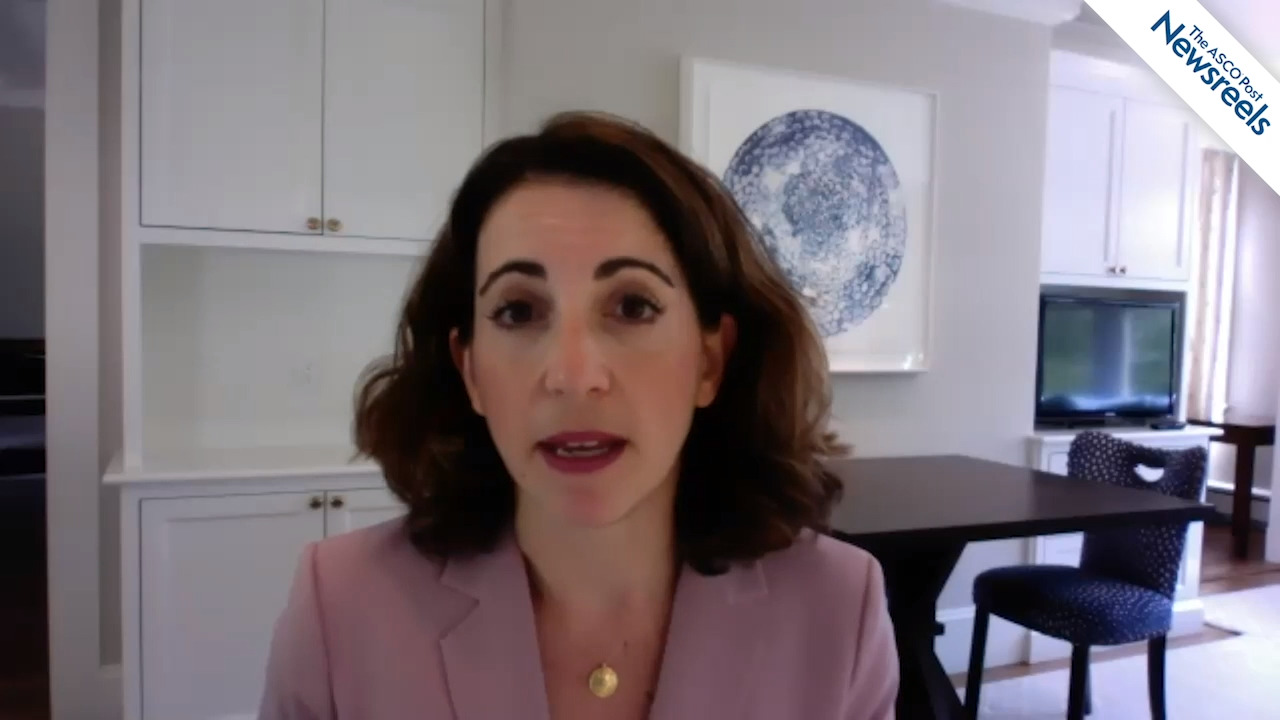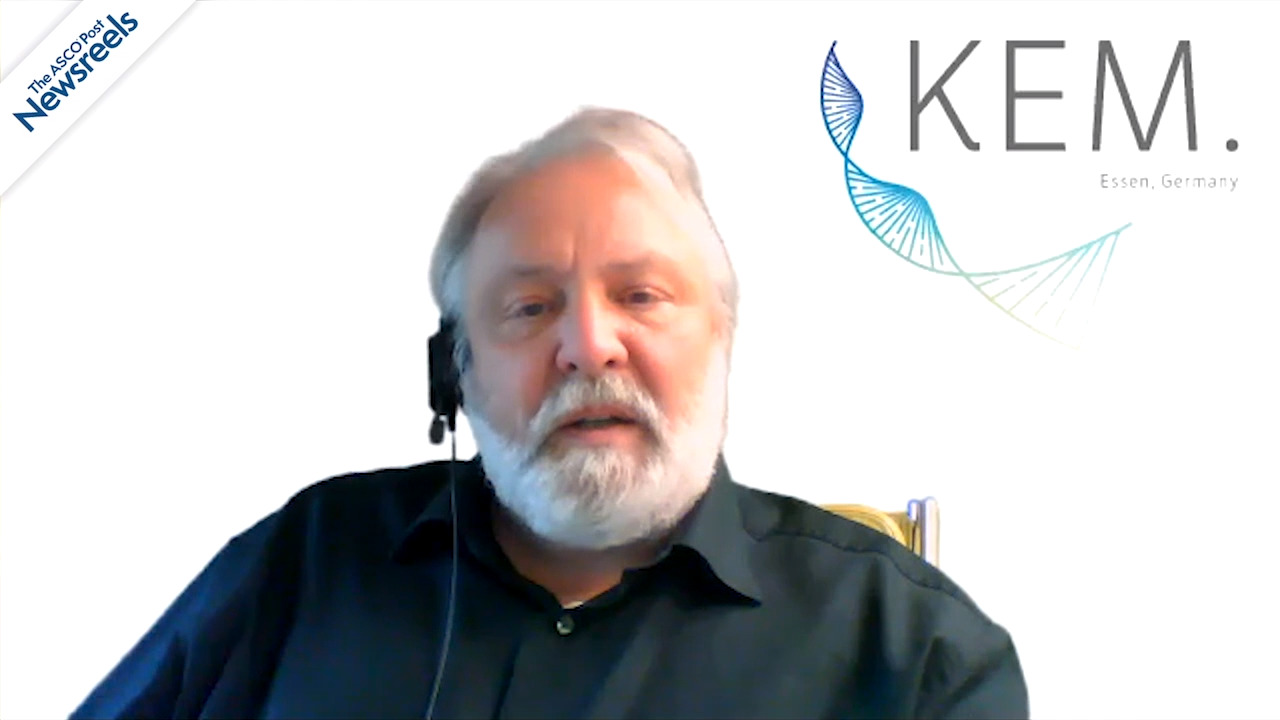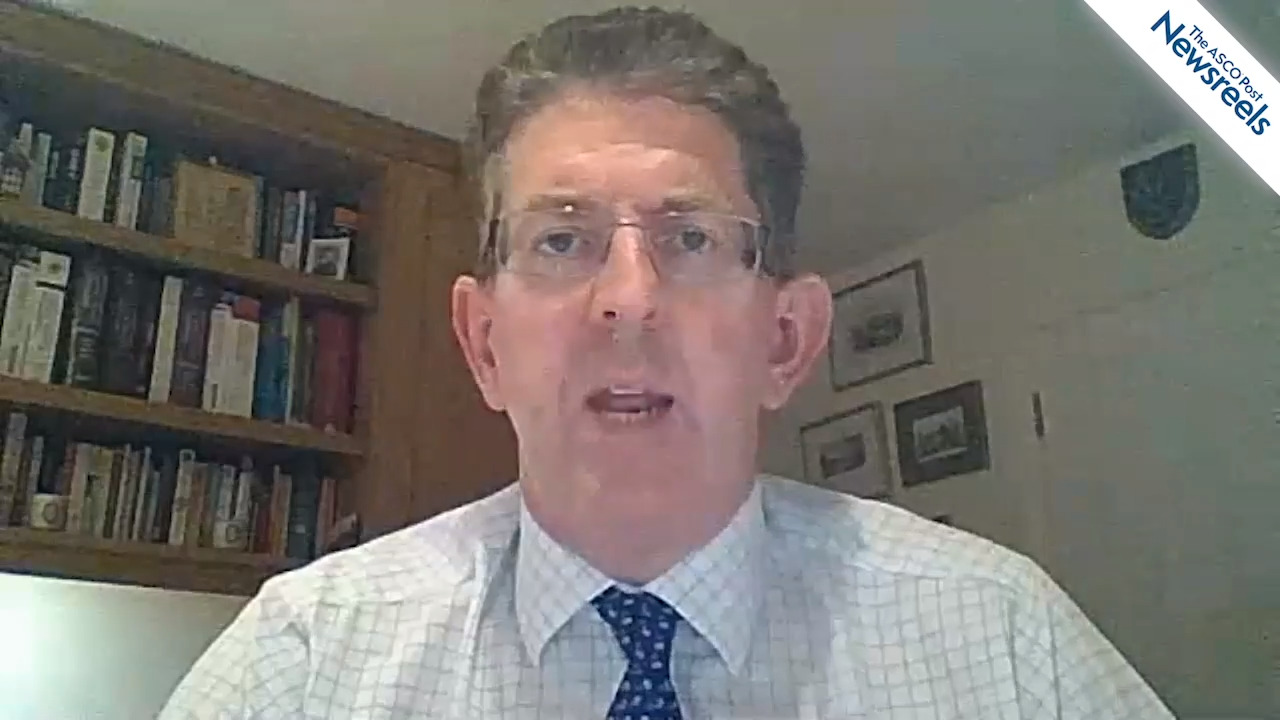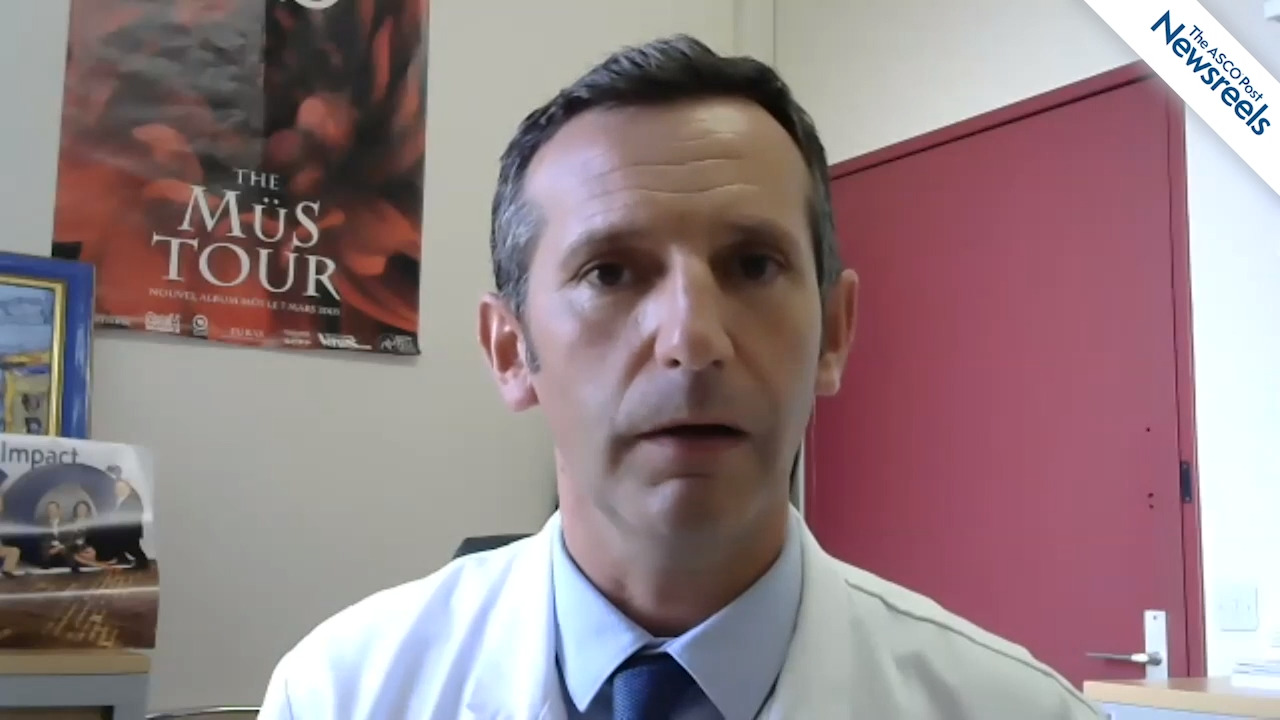David S. Hong, MD, on NSCLC: Durability of Clinical Benefit and Biomarkers in Patients Treated With Sotorasib
ESMO Virtual Congress 2020
David S. Hong, MD, of The University of Texas MD Anderson Cancer Center, discusses study findings on sotorasib, a novel, first-in-class, oral KRASG12C inhibitor. The agent demonstrated durable disease control in heavily pretreated patients with non–small cell lung cancer (Abstract 1257O).
The ASCO Post Staff
Erica L. Mayer, MD, MPH, of Dana-Farber Cancer Institute, discusses an initial analysis of phase III findings from the PALLAS trial, which suggested the benefits observed in the metastatic setting with palbociclib plus endocrine therapy did not translate into the earlier adjuvant setting for patients with hormone receptor–positive, HER2-negative breast cancer. Long-term follow-up is ongoing (Abstract LBA12).
The ASCO Post Staff
Andreas du Bois, MD, PhD, of Kliniken Essen Mitte, discusses the NORA and INOVATYON studies of patients with recurrent ovarian cancer, detailing the findings for women in China with platinum-sensitive disease and women internationally who received trabectedin and pegylated liposomal doxorubicin (PLD) followed by platinum at disease progression vs carboplatin and PLD after disease progression (Abstract LBA29 and LBA30).
The ASCO Post Staff
Stephen R.D. Johnston, MD, PhD, of The Royal Marsden NHS Foundation Trust, discusses phase III study findings from the global monarchE trial, which showed that when added to standard adjuvant endocrine therapy, abemaciclib is the first CDK4/6 inhibitor to improve invasive disease–free survival in hormone receptor–positive high-risk early breast cancer (Abstract LBA5_PR).
Read more on the monarchE trial in the Journal of Clinical Oncology.
The ASCO Post Staff
Benjamin Besse, MD, PhD, of the Gustave Roussy Cancer Centre, discusses results of the phase II PRINCEPS trial, which assessed, for the first time, the effect of just one injection of the immunotherapy atezolizumab before surgery in patients with resectable non–small cell lung cancer (Abstract 1215O).
The ASCO Post Staff
Alexander M. Eggermont, MD, PhD, of the Princess Maxima Center for Pediatric Oncology, discusses final results of the phase III EORTC 1325-MG/Keynote 054 trial, which confirmed a sustained recurrence-free survival benefit of pembrolizumab vs placebo in patients with resected high-risk stage III melanoma, as well as a decrease in the incidence of distant and locoregional recurrence (Abstract LBA46).





